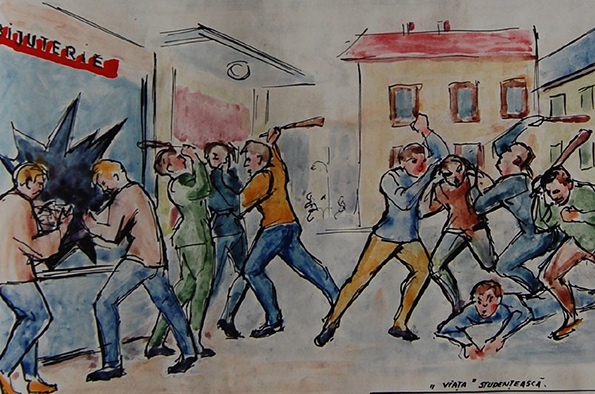
Doing effective public engagement on violence: an interdisciplinary Liverpool/UCD Workshop
- Deana Heath
- Suitable for: Colleagues and PGRs from the University of Liverpool and University College Dublin
- Admission: Free
Add this event to my calendar
Click on "Create a calendar file" and your browser will download a .ics file for this event.
Microsoft Outlook: Download the file, double-click it to open it in Outlook, then click on "Save & Close" to save it to your calendar. If that doesn't work go into Outlook, click on the File tab, then on Open & Export, then Open Calendar. Select your .ics file then click on "Save & Close".
Google Calendar: download the file, then go into your calendar. On the left where it says "Other calendars" click on the arrow icon and then click on Import calendar. Click on Browse and select the .ics file, then click on Import.
Apple Calendar: The file may open automatically with an option to save it to your calendar. If not, download the file, then you can either drag it to Calendar or import the file by going to File >Import > Import and choosing the .ics file.
Workshop Timetable
9:00 Welcome (Prof. Alison Fell, Dean of Histories Languages and Cultures, and Prof. Deana Heath, University of Liverpool)
9:15-10:45 Education and Ethics (Chair: Prof. Alison Fell)
- “Making Fascism Un-Cool: Challenges of Educating the British Public about Fascism”, Dr. Roland Clark (History, University of Liverpool)
- “How to Teach Violence?”, Dr. Jenna Byers (History, University College Dublin)
- “Two Ethical Dilemmas in Communicating Violence”, Dr. Rich Stupart (Communications and Media, University of Liverpool)
10:45-11:00 Break
11:00-12:30 Gender-Based Violence and Research (Chair: Prof. Deana Heath)
- “’Battered and beyond’: Oral History and Domestic Violence”, Dr. Kelly Fitzgerald (Irish, Celtic Studies and Folklore, UCD)
- “Co-Creation: The Role of Affected Collaborating Communities in Framing Public Engagement on Violence and the Researcher as Chorus”, Athanasia Francis (PhD Candidate in Hispanic Studies, University of Liverpool)
- “Women, Peace and Security? Gender-based Violence and Legacies of the Past”, Dr. Claire Pierson (Politics, University of Liverpool)
12:30-1:30 Lunch
1:30-3:00 Commemoration and the Museum (Chair: Prof. Barry Godfrey)
- “Violence in the Museum Gift Shop”, Dr. Jeremiah Garsha (History, UCD)
- “Challenging Narratives of Violence in Museums: Towards ‘Diversality’ and Digital Engagement”, Marjotte Miles (PhD Candidate in History, University of Liverpool)
- “Violence Against Children in the Holocaust – A Case Study for Public Engagement with Research on Violence”, Lior Tibet (PhD Candidate in History, UCD)
3:00-3:15 Break
3:15:4:15 Films and Audience (Chair: Dr. Roland Clark)
- “Roebourne”, Prof. Barry Godfrey (Sociology, Social Policy and Criminology, University of Liverpool)
- “Whose Violence is it Anyway? Public Engagement, Audience Emotion and the Responsibilities of the Researcher”, Dr. Maria Flood (Languages, Cultures and Film, University of Liverpool)
4:15-4:45 Discussion (Chair: Prof. Deana Heath)
